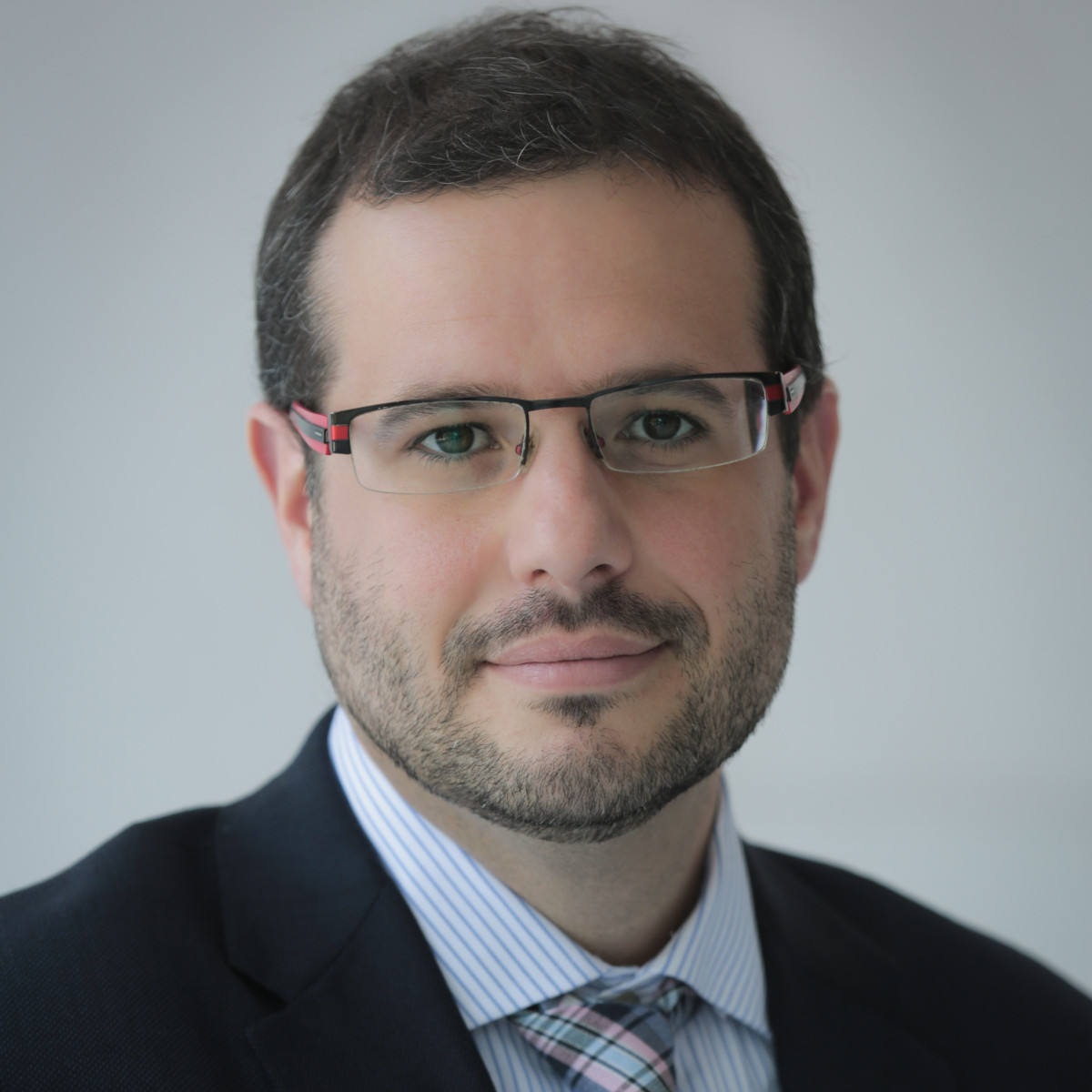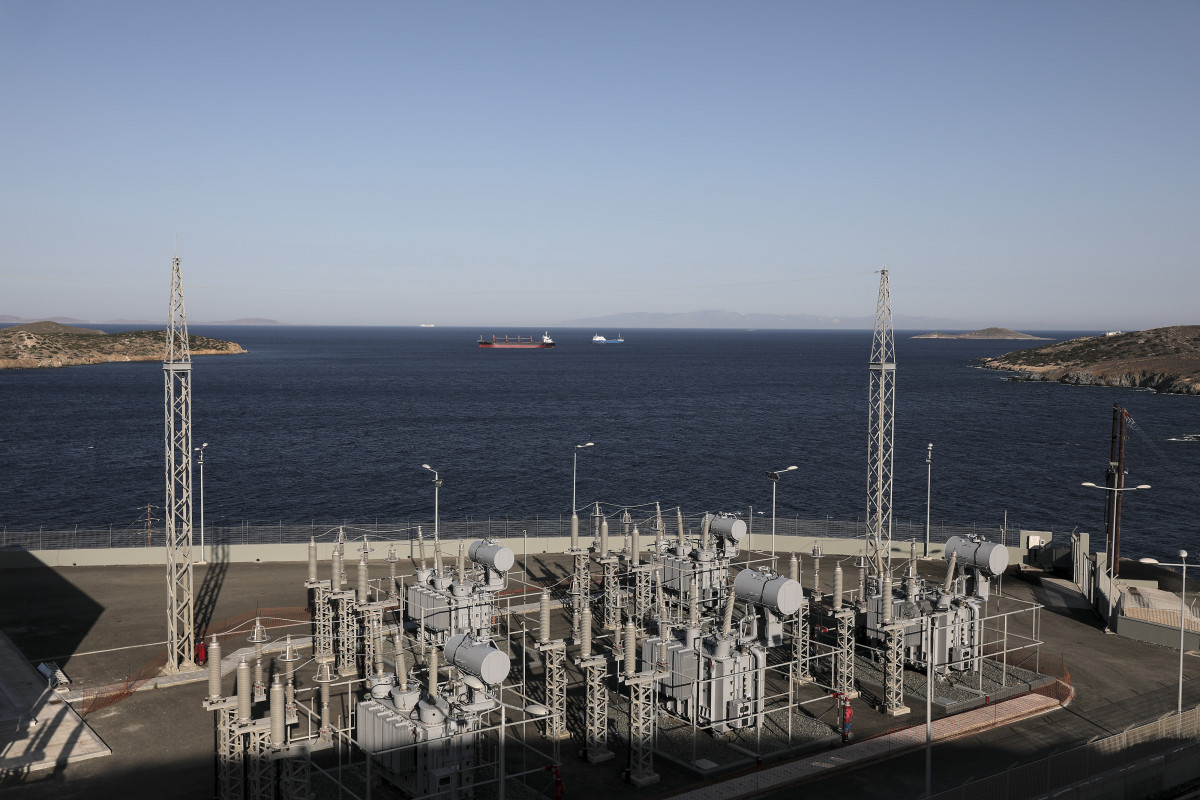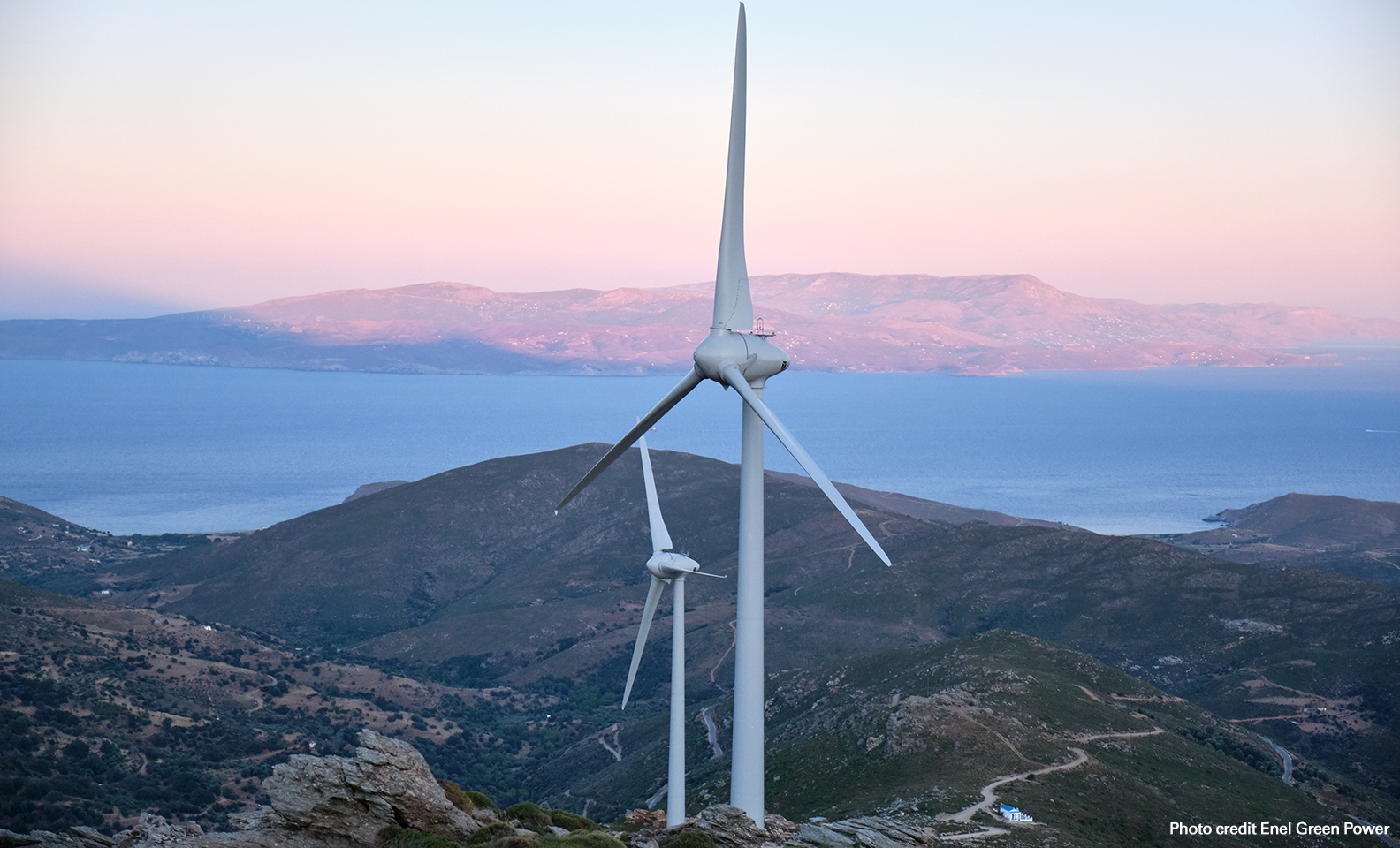EU must bet on interconnected energy system, exploiting countries’ strengths – Greek deputy energy minister

Clean Energy Wire: You have analysed and researched the intersection of energy and climate policy and geopolitics for many years. Taking all your experience into account, how would you describe the situation the world is in right now when it comes to its energy supply?
Nikos Tsafos: We just had an immense energy shock in Europe. Much of the worst parts of the shock are behind us, we are still not where we were in 2019 before the Covid-19 pandemic and before the war in Ukraine. Electricity prices are much higher, and gas prices – depending on your baseline – may even be double of what you had in the 2010s.
The real challenge is to figure out how to pursue energy and climate policy when you have the immense pressure of energy prices as a daily issue. There is a map that gets published, which shows the price of electricity for the next day. Every day that Greece is shown in red on the map [and prices are high] is a political issue and we are under pressure to deal with it. At the same time, we have to also think ahead, at 2030, 2040 and 2050.
When I think about the broader changes in the world – big agenda items like trade tensions, strategic autonomy, industrial robustness, defence in Europe, or responding to climate change – it is a real challenge to figure out how to pursue an energy policy that just makes sense.
It is very easy to get lost in the uncertainty of thinking through scenarios – what if this happens, what if that happens – and become paralysed. In Greece, we try to avoid this and figure out the things we can bet on, which will be true regardless of the way the world goes.
We know that we have great wind and solar energy conditions, and whatever the world looks like it is going to be using more of these. We know that our location in Europe gives us certain opportunities to play a regional role. At the same time, we have enduring principles of energy security like diversification, strategic buffers, well-functioning markets, or redundancy in infrastructure.
We are here at the energy security summit in London. What does it mean to be energy secure?
We are learning that you cannot think about energy security divorced from all the other issues we talked about. The Covid-19 pandemic and the energy shock made it clear that you need to look at dependencies in the supply chains. You now need to devise an energy security strategy in the broader context of a changing trade environment, a changing defence environment. One major lesson of this summit is that we need to do a better job of articulating energy security in the context of all the other things that we care about.
I have no doubt in my mind that renewables are the way to go, but I am worried about how we manage their volatility.
As someone who has been engaged in policy making at the European Union level over the past three years, the summit is a great opportunity to hear from non-EU actors. You can approach energy security either as a positive sum game, where everyone benefits, or as a zero sum game, where you aim to increase your security by making someone else insecure. Being able to listen to actors from around the world allows you to understand better those trade-offs, and to consider how the choices that you make in one part of the world might affect another part of the world.
Many researchers, politicians and climate advocates see the renewable energy ramp-up as the best way to ensure energy security. You are the deputy energy minister of Greece, essentially responsible for securing energy supply for a population of ten million. Do you also bet on renewables?
We have great sun and we have great wind. We obviously want to exploit our natural resources as much as we can, right? In addition, my country is not rich in fossil fuels. We have lignite that is not very high quality, and we are exploring for hydrocarbons, particularly gas, but we are a net importer of fossil fuels.
Greece usually spends about one billion euros a year on importing gas. In 2022, during the energy crisis, we spent 7.4 billion euros. Looking at these numbers, there is no doubt in my mind that I want to leverage the natural resources that we have.
Because of our renewables growth, last year we became a net electricity exporter for the first time since 2000. When this government came into power in 2019, Greece still imported 20 percent of its electricity needs. So, the benefits are very clear.
The flip side is that I spend a lot of time thinking about the nightmare scenarios: Greece is a market that consumes about 150 to 200 gigawatt hours of electricity in one day. In terms of renewables, we mainly have solar and wind power. Our solar range is from about 42 gigawatt hours on a very good, sunny day, down to three gigawatt hours when it is very cloudy. From wind energy it is 74 gigawatt hours on a really windy day, and just three when there is no wind.
I spent a lot of my time thinking about what happens during the days where we have three gigawatt hours solar and three gigawatt hours wind.
What happens on those days?
We have several options. Electricity balancing in Greece happens to a large extent through international trade. We export when we have a surplus in renewables and we import when we have a deficit in renewables.
It is really important to have a European system that is designed to exploit the natural resources of each country – and that is not designed as 27 systems stitched together, but as one system.
However, the complexities of the challenges entailed in building such a system are enormous, and we have a lot of work to do. In Europe, we have to deal with really detailed, highly regulated markets and sub-markets, where costs can pop up suddenly and these can be very large. High prices in Greece can often be traced back to causes four or five countries away.
We have a very complex electricity system with volatile renewables supply. We can go from curtailments to thousand-euro prices in the span of a few hours. One half of Europe can face curtailments, while the other half is in crisis mode.
And we also have a system that is changing dramatically. From one year to the next fossil plants may be shutting down, you may have a lot more solar, a lot more wind. Every year you enter a new world and you must keep adapting.
I have no doubt in my mind that renewables are the way to go, but I am worried about how we manage their volatility. I know that part of the answer is trade. In the end, the complexity of the system and the volatility of all this are huge challenges for us in terms of energy security.
UK energy secretary Ed Miliband said here at the summit that countries should cooperate, but that the different national energy security pathways should be respected at the same time. Can the 27 pathways in the European Union be aligned?
Yes, I think so. Greece’s prime minister has talked about the ‘one target rule’. He said: give us the bottom line – such as net zero by a certain year – but let us each find our own way to reach that target, with differing approaches in the sub-sectors, be that hydrogen, biofuels, building efficiency or shipping.
It is not unreasonable to say that one country can bet on nuclear energy, another on offshore wind, another can invest in hydrogen, yet another in carbon capture. We can each find our niches and lean in more on the things that make sense for us – geographically, industrially, and so forth.
I think there is a midpoint between where we are now, which oftentimes feels like we are overprescribing the paths, and something that is more the vision of the ‘one target’. I realise that reality is maybe somewhere in the middle, but there is a lot of scope in advocating complementarity rather than uniformity. Complementarity is probably going to reduce the cost of the transition.

And if you have this European system that works well, do you then in the end just have net winners or are there also countries that are worse off than they would be if they were going it alone?
I think you are going to have net winners. I would not say that I thought through the 27 countries and the alternatives, but what I can tell you is that when you allow countries to lean in on their competitive advantages, this has benefits.
I told you how difficult it is for us to balance our system with renewables. Right next door to us is Albania, which is largely using hydroelectricity. Their hydro power could be a great balancing source for us. But we have to have a system that works, which they can buy into. If your resource is part of a whole system, then you can actually get more value out of it than if you are just using it on your own.
These days we witness numerous geopolitical upheavals, which push governments to focus on energy security. Would you consider these hurdles or drivers of the energy transition?
They can be both. You can have frictions that slow things down, such as trade barriers, which slow investments or inhibit the deployment of technologies. However, once you articulate the energy transition not just as a climate imperative but as a security and geopolitical imperative, it can actually speed things up by giving a political impetus.
Italy aims to become a major energy hub in the Mediterranean region. Is this also something that Greece wants to do? And how do you see Greece's role in the region’s energy transition?
I always try to split our strategy into resources and geography.
We have our own resources and as I said before, we became a net exporter of electricity last year. We see a huge potential in continuing to develop our own resources.
The hub is usually a country that transports someone else's resources. Right now, there are four gas pipelines that connect northern Africa to southern Europe. I think there are going to be four cables in the medium to long term that will connect the two regions.
When you look at the scale of what is needed and the resource potential, I do not think this is a question of who is going to do it. It is going to be a question of multiple routes, because the needs are just so great. Greece can play a role. We have played it in gas and oil in the Balkans, we will play it in electricity, we can play it in hydrogen, and in CO2.
Is it going to be more of a competition between countries or is actual cooperation possible?
There is just so much to do that I do not think it is going to be one or the other. There is plenty of space for everyone to play their role.

